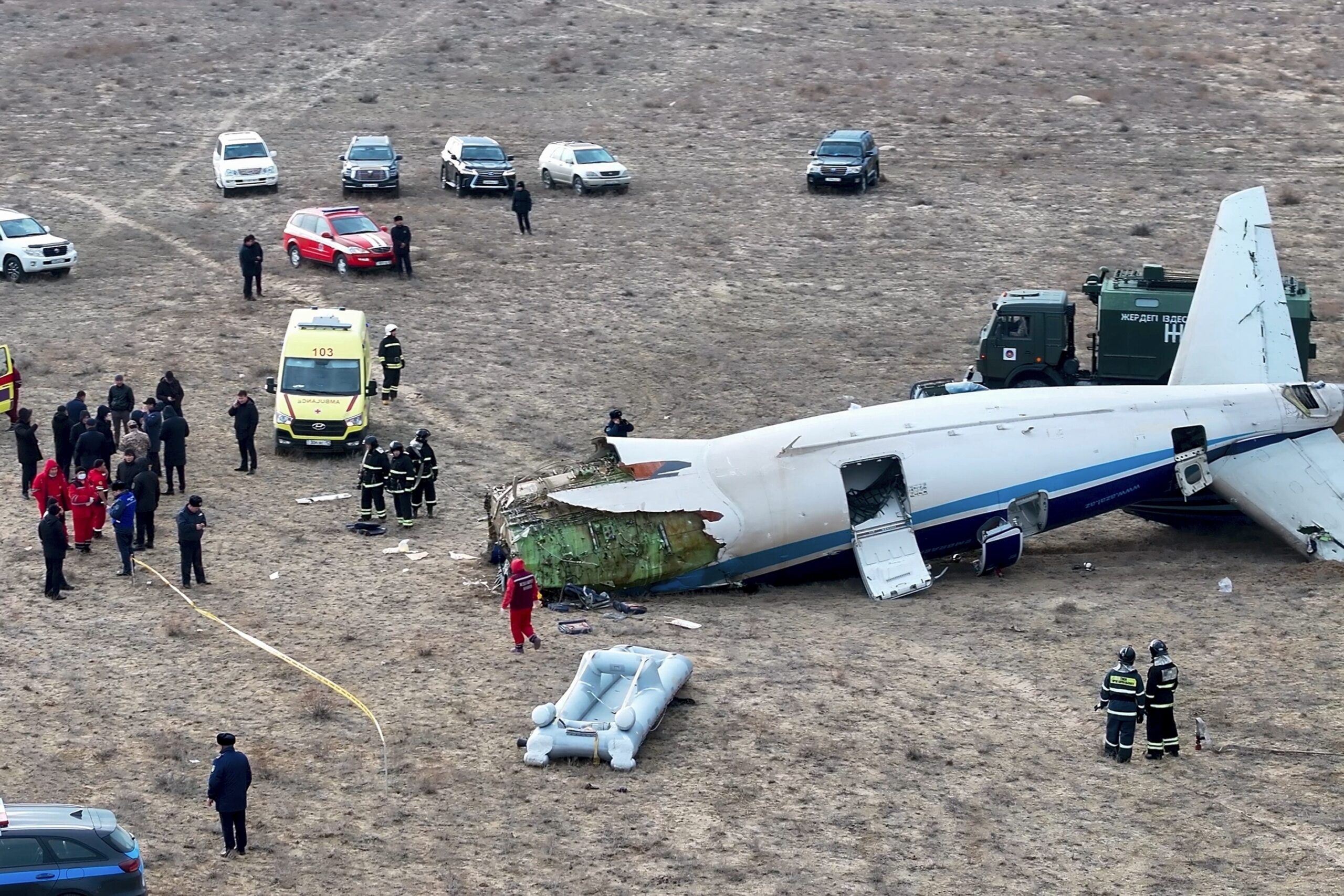Russians responsible for the Azerbaijan Airlines plane crash.
By: Dean Riaz
Azerbaijan Airlines Flight 8243 was supposed to be like any other routine flight departing from Baku. This ill-fated journey has far-reaching repercussions in a region plagued by tension, war, and foreign interests. The two most serious repercussions are future threats posed by a destabilized yet more aggressive Russia and numerous countries fighting for influence in the wake of Russia’s diminishing power.
On December 24, 2024, Azerbaijan Airlines Flight 8243 took off in Baku, Azerbaijan heading for Grozny, Russia. 40 minutes into the flight, after entering Russian airspace, the pilot described a total loss of GPS communications due to radio jamming. Once the plane neared Grozny’s airport, crew members and passengers recounted hearing a large explosion and shrapnel hitting the plane. Flight 8243 quickly redirected the flight path, hoping to reach Aktau airport in neighboring Kazakhstan. Sadly, the flight landed abruptly, crashing near Aktau airport, killing 38 of 67 people onboard.
Azerbaijan’s president, Ilham Aliyev, the United States government, Ukraine, and numerous European nations all believe the plane was downed due to a direct hit from a Russian surface-to-air missile. Vladimir Putin, Russia’s president, has denied any responsibility and panned the blame towards Ukrainian drones in the area. To Russia’s chagrin, what likely occurred is that a Russian missile mistook the plane for a Ukrainian drone. Nonetheless, both sides agree on one fact: the civilian aircraft was shot down by military technology. This event was not only a tragic loss of life but offered a glimpse into what a weakened and more aggressive Russia can do. The country has been depleted by nearly three years of long, destructive war in Ukraine and the expanding influence of other countries in the region. This changing dynamic has Azerbaijan and other neighboring countries a dilemma of which nations they must align themselves with.
Azerbaijan, a former Soviet Republic, is located in the volatile Caucasus region where separatist conflict, ethnic cleansing, and expansive war have dictated politics for several decades. Prior to the invasion of Ukraine, Russia played a key role in the affairs of its former republics throughout the Caucasus and Central Asia, including mediating disputes, sending peacekeepers, and providing economic support. However, Russia has since diverted resources, manpower, and attention away from the region after finding itself stuck in a prolonged war with Ukraine having already lost over 600,000 men. This pivot has left a power vacuum waiting to be filled in the Caucasus and nearby Central Asia. In 2023, Azerbaijan launched a full-scale attack on a breakaway ethnic Armenian region where peace was previously in the hands of Russian troops. The nation has recently strengthened its relations with regional actors including Turkey and Iran, while China is spreading economic and military influence throughout the former Soviet Republics. The United States, sensing Russia’s weakening power, China’s accession, and general regional instability is also propping up the Armenian government and supporting the anti-Moscow Georgian population. Russia’s weakening power could cause more countries to involve themselves into this region, causing an increase in acts of aggression on innocent people without a suitable mediator.
Missile strike or not, Azerbaijan Airlines Flight 8243 has exposed the deep divides in the former Soviet Union. The tragic event highlights how a diminished Russia, expansionist China, and interventionist United States have turned an entire region into a powder keg, ready to explode into a future battleground.



